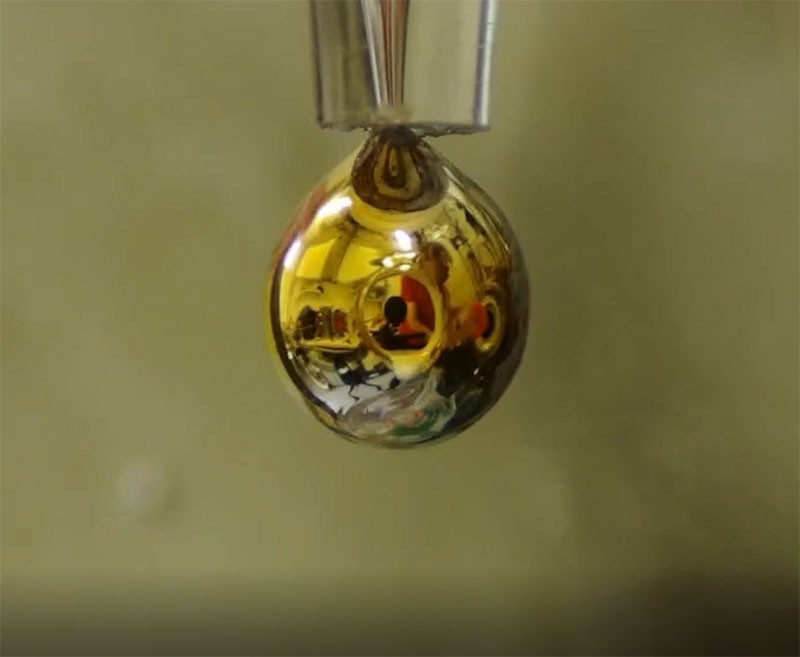Researchers & scientists of 21st century is on full swing in making the impossible, possible. Whether it may be resolving the 100-yr old paradox of time-travel and making it theoretically feasible, or extracting electricity from human’s sweat and this, turning water into gold.
As we all know, water and gold are two different phases of matter with atoms loosely packed in the first & tightly packed in the latter respectively. The atomic structure of the two have a strong contradiction and they can’t be modified to become another – was what believed so far in history.
Impossible feat achieved
Researchers at the Czech Academy of Sciences, Prague, have done something that only alchemists in the folklores could do. They turned a water droplet into a shiny, golden metallic blob. This miraculous sight lasted for a few seconds, but it amounted to a massive achievement for the researchers.
The water stayed in a metallic state for a only few seconds, but the experiment did not require the high pressures that are usually needed to turn non-metallic materials into electrically conductive metals.
Co-author Pavel Jungwirth, a physical chemist at the Czech Academy of Sciences in Prague, says that seeing the water take on a golden shine was a highlight of his career. The team published its findings on 28 July in Nature.
How they did it?
Theoretically, imposing extremely high pressures onto liquids result in becoming metallic, wherein atoms or molecules are squeezed together so tightly that they begin to share their outer electrons, and hence conduct electricity as a chunk of copper or iron behave. The centres of massive planets such as Neptune or Uranus contain water in such a metallic state and that high-pressure metallic hydrogen can even become a superconductor, enabling it conduct electricity with zero resistance, Geophysicists believe.
Turning water into a metal in this way would be in need of 15 million atmospheres of pressure expectedly, which is out of the question in current lab techniques, says Jungwirth. But the suspected idea of him, making water conductive by borrowing electrons from alkali metals, paved for the upshot.
The researchers filled a syringe with sodium and potassium, a mixture that is liquid at room temperature, and placed it in a vacuum chamber. They then used the syringe to form droplets of the metal mixture and exposed them to small amounts of water vapour. The water condensed onto each droplet and formed a layer one-tenth of a micrometre thick. Electrons from the droplet then quickly diffused into water – together with positive metallic ions – and, within a few seconds, the water layer turned golden.
Jungwirth says the experiment was a refreshing break from his day job, which is to run computer simulations in organic chemistry, and a reminder that science can be fun. “It’s not something you can get grant money for, but something you can do on your weekends,” he says.
That will hit hard positively, when you really want to work on your passion!
References:

